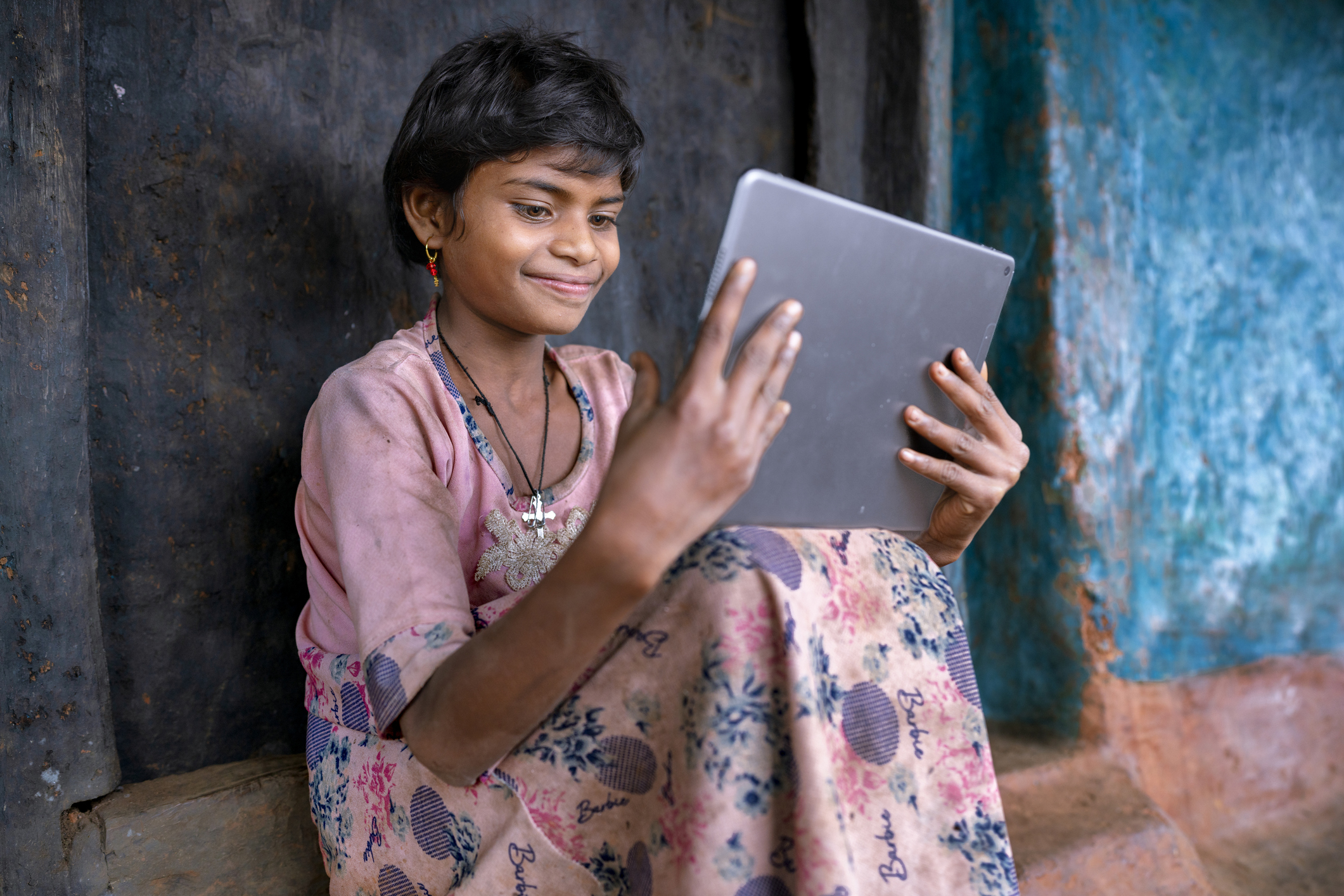Decolonising digital design: Towards safe and inclusive digital experiences for children and young people

Exploring how we can decolonise digital design to foster an inclusive, just and safe internet that empowers, values, and represents diverse children and young people.
Our Vision
Very little is known about diverse children and young people's perspectives of what it means to design digital initiatives that are inclusive, just and safe. Still less is known about how to evaluate the effectiveness of such initiatives. This research will contribute to the field of internet studies by developing an applied framework and accompanying tools to foreground children and young people's perspectives in the ethical and inclusive design and evaluation of globalised digital products and services, thereby contributing to efforts to decolonise the internet.
Our Project Plan
This project begins from the premise that cross-cultural engagement with children and young people in design can strengthen ambitions to localise offerings for children and young people in different countries, potentially increasing the positive impacts of digital technologies for children's and young people's wellbeing, safety and rights (Third, 2022), thereby contributing to efforts to decolonise the internet.
Drawing on internationally unique Distributed Data Generation (DDG) methods developed by the Young and Resilient Research Centre, and taking a child-rights, co-research and collaborative approach, this project will work with diverse children and young people in urban and rural settings in 9 countries, primarily in the global South, to generate data about how their engagement with the digital environment impacts their sense of culture and identity, and to identify how digital technologies can be better designed to respect and enhance their lived experiences in diverse contexts.
With partner organisations from diverse regions, this project will co-develop, with children and young people:
1) A framework and accompanying principles, which crystallise children's and young people's insights, to guide the design of culture-centred, ethical, inclusive digital environments to facilitate decolonisation of the internet;
2) Child-Centred indicators to evaluate the effectives of these initiatives, and;
3) An online evaluation tool, incorporating the child-centred indicators, that platforms can use to plan evaluations that measure the effectiveness and impact of their application of culture-centred design.
Combined, these outputs will support digital platforms and services, as well as governments and NGOs in diverse locations around the world, to prioritise the needs and priorities of diverse children.
Project History
The project builds upon a 12-month pilot study led by the Young and Resilient Research Centre and developed in partnership with the Centre for Development Management and Communication at MICA, Ahmedabad, India, alongside Indonesian partner, the SEJIWA Foundation. The pilot explores children and young people's perspectives about culture-centred digital design in three countries: Australia, India and Indonesia.
What impact will this research have?
Industry and government will be able to use the resources generated through this research to help support their planning, implementation and assessment of initiatives aimed at digital inclusion of children and young people in diverse cultural contexts. While developed to help users identify phenomena that can be measured to evaluate the changing state of digital decolonisation over time, the framework, tool and guidance will also help industry and government actors recognise and consider broader issues of digital decolonisation, assisting these actors to develop evidence-based plans about effective ways to actually enact digital decolonisation.
Outputs
Decolonising Digital Design - Youth Co-research Handbook for Partner Organisations
Partner Organisation Phase 1 Workshop Implementation Manual
Collaboration team
Internal collaborators
Professor Amanda Third
Louisa Welland
Dr Girish Lala
Lucia Barrera
Dr Kim Lam
Logan Culley (Youth co-researcher)
Meron Berhane (Youth co-researcher)
External collaborators/Partners
Professor Manisha-Pathak Shelat
World Vision Solomon Islands
MICA (India)
Informed Future Generations (Rwanda)
House of Africa (Chad)
The Daughters of Charity of St. Vincent de Paul (Lebanon)
The Centre for Social and Economic Research (Poland)
Rede Conhecimento Social (Brazil)
Red de Adolescentes y Jóvenes Indigenas de Amazonas (Venezuela)
Funding
This research is funded by an Internet Society Foundation Research Grant.
Sustainable Development Goals
The project addresses SDG 10: Reducing inequalities
Streams
Places and Platforms
Period
November 2024 – November 2026
Contact: If you would like to get in contact with the project team, please email Louisa at l.welland@westernsydney.edu.au.
